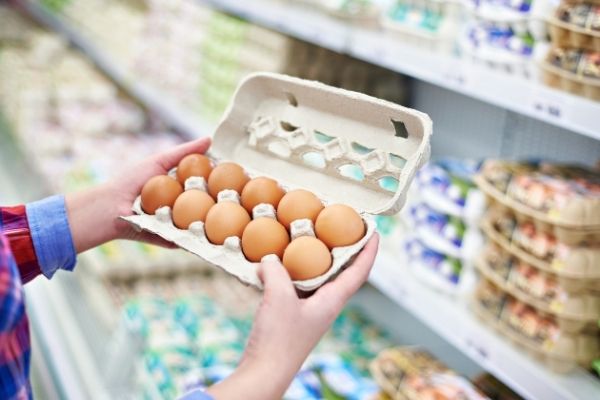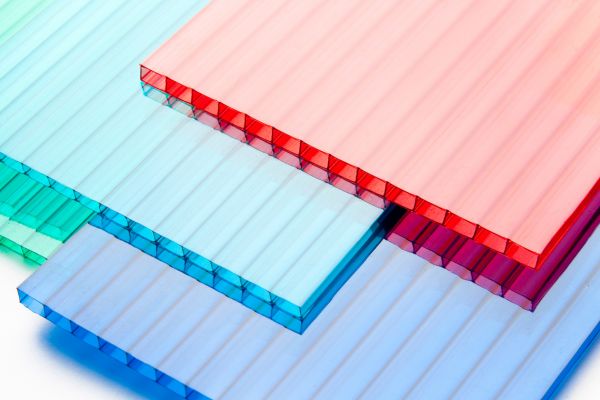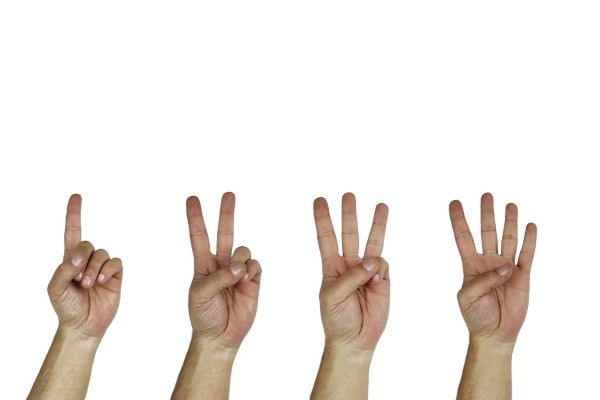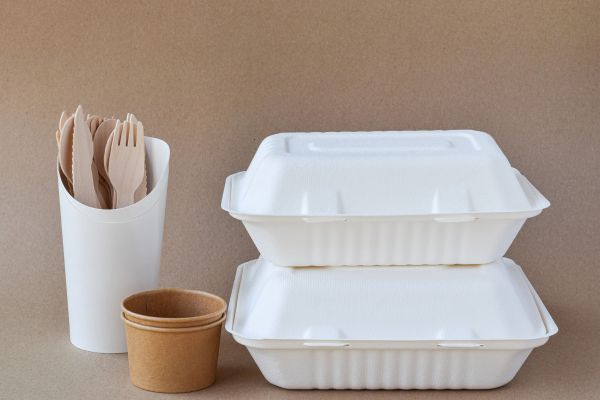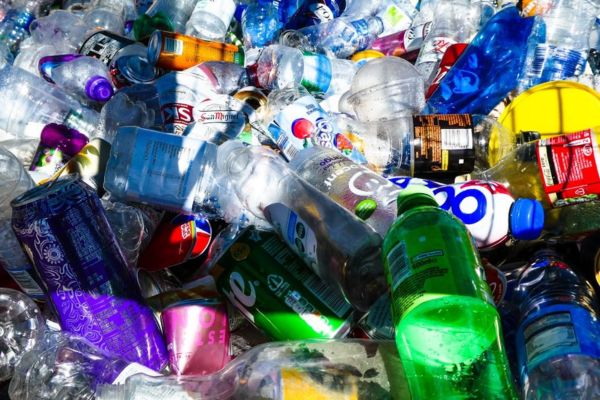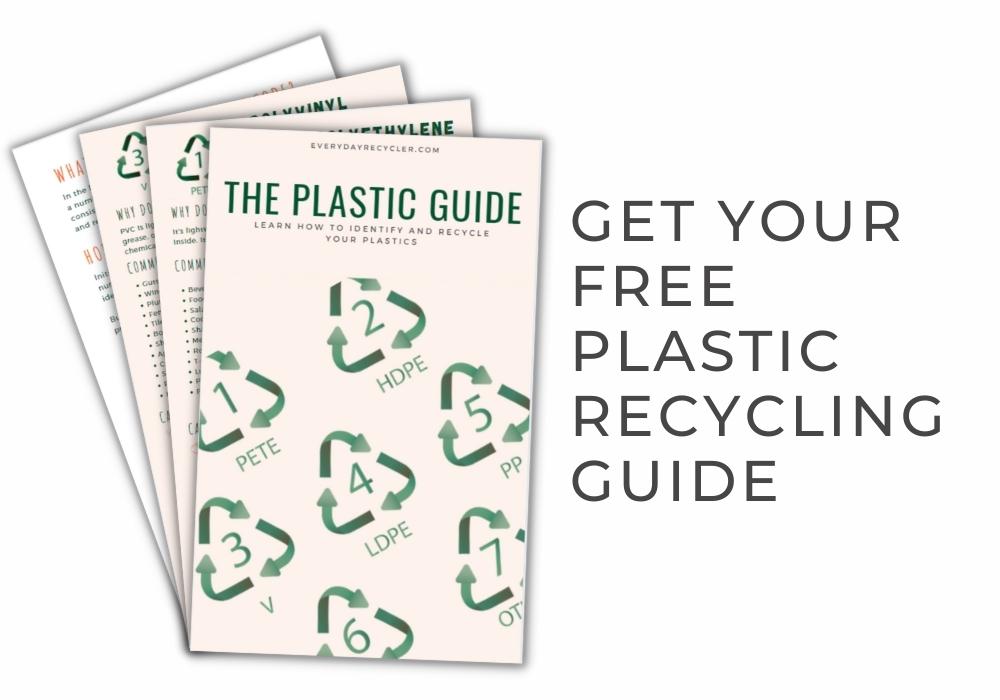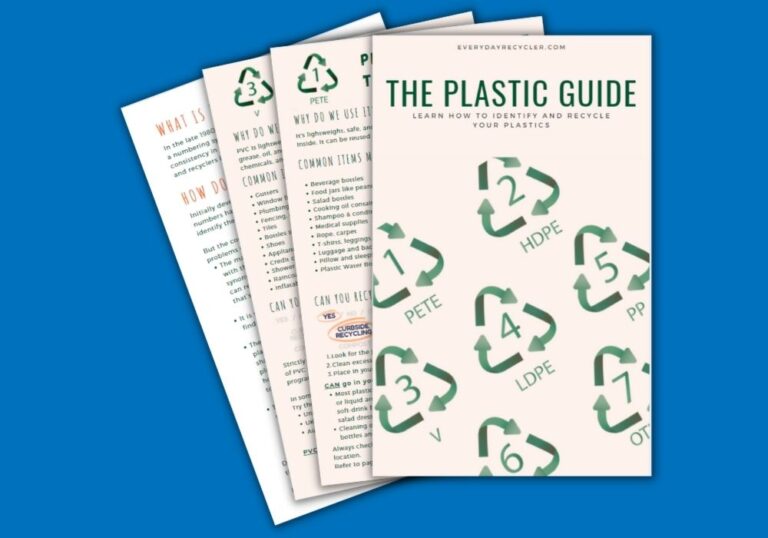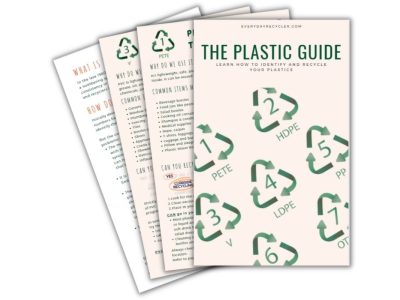We can make lots of small changes in the kitchen to reduce our waste and recycle better. Whether you are making breakfast, baking a cake, or painting an Easter Egg, you almost always find eggs in the kitchen. Figuring out if you can recycle egg cartons seems like it should be easy, and it is; there are just a couple of things you need to know.
But first some egg facts:
- Americans consume more than 290 eggs every year, and the numbers are growing. That’s 80 egg cartons a year for an average family.
- Japan consumes the most eggs with an average of 320 eggs per person.
- Australians eat an average of 4.7 eggs a week, or 255 per year.
Want to figure out how to recycle other items around the home like pringle cans, e-waste, or milk cartons check out our blog.
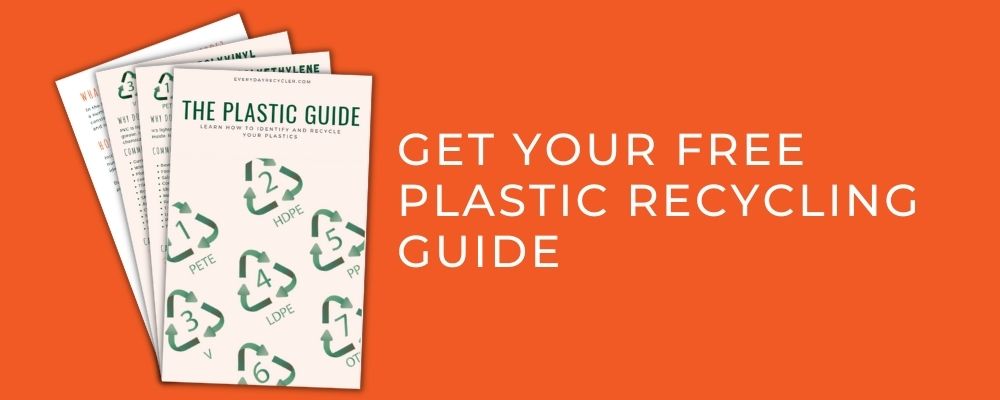
There are two different materials that egg cartons are made from, cardboard or plastic. The plastic egg cartons use either polystyrene or clear plastic, PET, the same plastic used for water bottles.
The different types of egg cartons:
How do you tell the difference?
Well, the cardboard egg cartons will feel like paper, and when you tear them, they will show several layers. Polystyrene or Styrofoam egg cartons, as the name suggests, will feel slightly foamy although it is thin. They are also quite shiny compared with paper. The clear plastic PET egg cartons will look like the same plastic you find on soft drink bottles and water bottles.
Here is a little more about each type and how you can recycle them.
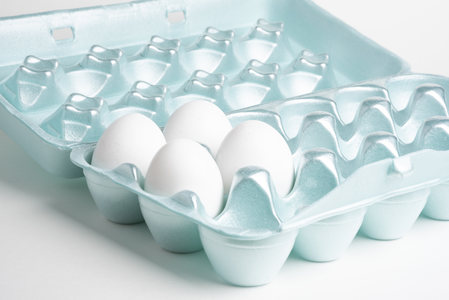
Quick Navigation
Styrofoam Egg Cartons
What's It Made From
Styrofoam is actually the same material as polystyrene or plastic number 6, which is made from petroleum. Polystyrene is used because it’s a good insulator, is extremely lightweight, and is very versatile. It is also very cheap for manufacturers to use.
Did you know: Styrofoam is a trademark of Dow Chemical Company and refers to a different method to make Polystyrene.
Polystyrene is not a great material as it can last a very long time in the environment. It is also extremely lightweight, so it can blow around and out of bins and landfills very easily. Once it gets into the environment, the polystyrene breaks down into smaller pieces very easily.
The question is, can you recycle Styrofoam egg cartons? Well, yes, you can, but as we like to say, it’s a little complicated!
How to Recycle Them
Although it’s possible to recycle polystyrene or Styrofoam egg cartons, most of us do not have access to a recycling program. Many local authorities do not accept Styrofoam egg cartons. This is either because they do not have the facilities to sort them or to recycle polystyrene.
If your local authority does not accept polystyrene, there are a couple of other options. You can check if your local grocery store has a take-back program for recycling the foam packaging. Eggsland’s Best has a program to send your clean egg cartons to them if you do not have a community program. There may also be similar programs around.
Recycled styrofoam can be made into many other items like building materials, insulation, even some hard-plastic items like plastic moldings. It can also be made into packing peanuts. Although it is good to recycle the material into something new, packing peanuts cannot be recycled again. Plus, there are many alternatives to packing peanuts that are more easily disposed of and even recycled.
If you have a curbside program available for your foam egg cartons, make sure the carton is clean and throw it in your recycling bin.
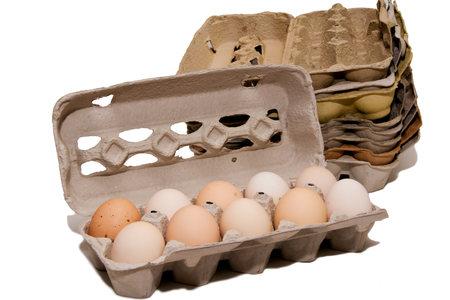
Cardboard Egg Cartons
What's It Made From
Cardboard or paperboard egg cartons are much more eco-friendly. The cardboard can usually be recycled, and if not, it can be composted.
Some recycling programs will not accept any egg cartons. This is because people don’t always recycle correctly, so they end up with different types of egg cartons. It is challenging for them to separate the Styrofoam cartons from the cardboard egg cartons, so it’s easier not to accept any.
Most cardboard egg cartons are made from recycled paper or cardboard. This is great because they are already recycled once. Unfortunately, as paper and cardboard are recycled, they lose their quality, and so they cannot be recycled infinitely.
Every time the wood fibers are recycled, they get shorter and shorter. Sooner or later, they are too short to be used. Things like egg cartons are often at the end of the materials life, and so it is not worth recycling them.
Luckily cardboard egg cartons can also be composted, and they will generally break down if they end up in landfill. If you are composting, don’t forget to compost your eggs shells too.
How to Recycle Them
Always check with your local authority. As mentioned above, some curbside programs will not accept egg cartons at all. Others will not accept cardboard cartons because they are made from very low-grade paper.
If you have a curbside program available to recycle your egg cartons, here are our tips:
- Make sure there is no food residue in the carton. Food residue can have an impact on the recycling process.
- Try to use a bowl to put your cracked eggs into rather than the egg carton to help keep it clean.
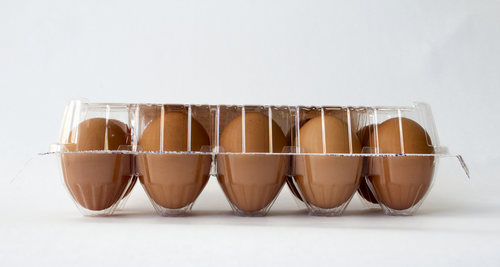
Clear Plastic Egg Cartons
What's It Made From
These clear egg cartons are usually made from polyethylene terephthalate or PET plastic. This is plastic number 6 with the chasing arrows around it. You should see this symbol on the bottom of the egg carton.
How to Recycle Them
Recycling these containers is pretty simple as PET is one of the most recyclable types of plastic. They can go straight into your curbside recycling program. Just make sure they are clean.
Ways to Reduce and Reuse
Here are some ways you can reduce your use of egg cartons, reuse the ones you have, and choose the best egg cartons.
- Choose cardboard egg cartons or PET clear plastic egg cartons over foam.
- Avoid polystyrene or Styrofoam where possible.
- Buy eggs from a local farmer if you can. Then you can bring back your egg cartons and reuse them.
- Give the cartons to someone who has chickens so they can be used again.
- Encourage your local egg supplier to make the switch to paperboard.
There are lots of other fun ways you can reuse your egg cartons. Here are our favorites.
- Use them for compost (only the cardboard type)
- Paint pallet for budding artists
- Grow seedlings
- Organize your sewing room
- Donate them to a school or local arts and crafts community group
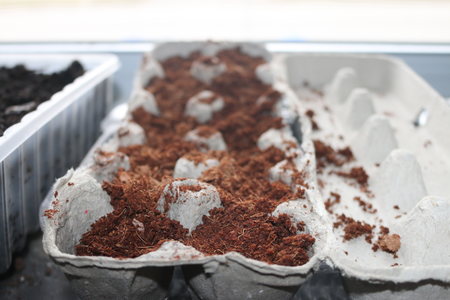
The Quick Version
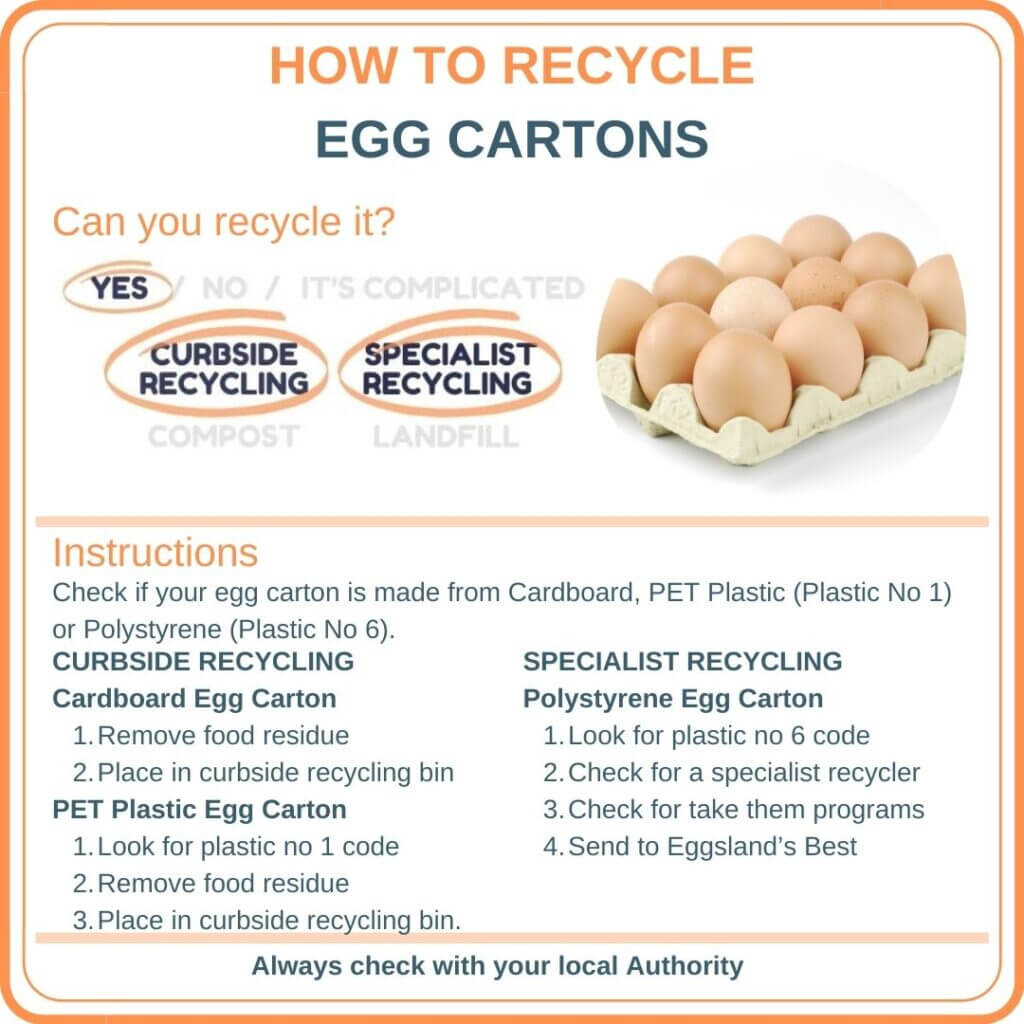
Egg Cartons of the Future
In 2012, a Hungarian student came up with a new design for the humble egg carton using cardboard and a rubber band. It doesn’t seem like it has taken off as I have not seen these on the supermarket shelves.
Saunder’s Eggs use slightly more eco-friendly egg cartons that have grass in them. They are made from a mix of recycled paper and grass, 50% to be precise. This not only makes them even more eco-friendly, but they break down easier.
Perhaps a better long-term solution is reusable egg cartons. Pete & Gerry’s in the US have devised a way to have a reusable egg carton. In December last year, they ran a pilot for their reusable egg cartons.
The idea is you pay a small fee to buy a reusable egg carton made from recycled polypropylene. You fill it with eggs yourself, bring it back when you are ready, and refill it. This is a great idea. I hope it goes well and other companies follow.
The Wrap Up
So the answer to the question can you recycle egg cartons is yes, you can. However, it depends on the type that you have and where you live.
I believe polystyrene is to be avoided because there are not many options for recycling it. Between cardboard and PET, it’s possibly an equal place. Some say that creating cardboard egg cartons is energy-intensive and uses a lot of resources. Of course, if the choice was virgin PET, then cardboard would win easily but compare to recycled PET, it might be a closer call.
The best you can do is choose the material you know you can recycle based on your available facilities. If you have polystyrene recycling available, then great, but if not, one of the other options is much better. If you regularly compost, then choose cardboard. Of course, that depends on what your local store carries also.
Check with your local authority. If you can, make the switch to ensure you can recycle your egg cartons.
We can all make a difference in small ways.
Let’s reduce waste together.
- Published by M. Shahbandeh, 2020, Per capita consumption of eggs in the United States from 2000 to 2020, Statist.com
- Packaging World, 2020, Reusable Egg Carton in Pilot
- Stephen Dowling, 2013, The egg box that updates a humble yet classic design


